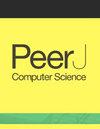具有滞后、卸载和运输时间的多阶段混合流程车间调度问题
IF 2.5
4区 计算机科学
Q2 COMPUTER SCIENCE, ARTIFICIAL INTELLIGENCE
引用次数: 0
摘要
本研究旨在通过同时整合滞后时间、卸载时间和运输时间来解决混合流程车间问题的一个变体,目标是最大限度地缩短完工时间或工期。该问题应用于图像处理、制造和工业环境中,具有重大的理论挑战,被归类为 NP-hard。值得注意的是,该问题具有显著的对称性,因此在对称问题表述中,调度问题及其对称对应问题都有相同的最优解。为了提高求解质量,所有建议的程序都扩展到了对称问题。本研究在全面回顾现有文献的基础上,率先考虑了混合流水车间调度问题,同时关注滞后、卸载和运输时间。该研究引入了一种两阶段启发式方法,作为这一复杂问题的解决方案,其中涉及并行机器调度问题的迭代求解。这种方法将问题分解为易于管理的子问题,便于集中、高效地解决问题。使用所开发的启发式高效解决子问题,可获得令人满意的近似最优解。此外,还提出了两个新的下限,这两个下限是通过求解多项式并行机问题,估计每个阶段内的最短空闲时间得出的,该并行机问题旨在最大限度地减少总流程时间。通过测量相对差距,这些下限可用于评估所开发的两阶段启发式的性能。对不同规模的基准测试问题进行的广泛实验研究证明了所提出方法的有效性。所有测试问题都能在合理的时间范围内高效解决,表明了方法的实用性和高效性。所提方法的平均计算时间为 8.93 秒,平均差距为 2.75%。这些计算结果凸显了所提方法在现实世界中的有效性和潜在适用性,为混合流水车间调度的进一步研究和实际应用提供了宝贵的见解和铺平了道路。本文章由计算机程序翻译,如有差异,请以英文原文为准。
Multi-stage hybrid flow shop scheduling problem with lag, unloading, and transportation times
This study aims to address a variant of the hybrid flow shop problem by simultaneously integrating lag times, unloading times, and transportation times, with the goal of minimizing the maximum completion time, or makespan. With applications in image processing, manufacturing, and industrial environments, this problem presents significant theoretical challenges, being classified as NP-hard. Notably, the problem demonstrates a notable symmetry property, resulting in a symmetric problem formulation where both the scheduling problem and its symmetric counterpart share the same optimal solution. To improve solution quality, all proposed procedures are extended to the symmetric problem. This research pioneers the consideration of the hybrid flow shop scheduling problem with simultaneous attention to lag, unloading, and transportation times, building upon a comprehensive review of existing literature. A two-phase heuristic is introduced as a solution to this complex problem, involving iterative solving of parallel machine scheduling problems. This approach decomposes the problem into manageable sub-problems, facilitating focused and efficient resolution. The efficient solving of sub-problems using the developed heuristic yields satisfactory near-optimal solutions. Additionally, two new lower bounds are proposed, derived from estimating minimum idle time within each stage via solving a polynomial parallel machine problem aimed at minimizing total flow time. These lower bounds serve to evaluate the performance of the developed two-phase heuristic, over measuring the relative gap. Extensive experimental studies on benchmark test problems of varying sizes demonstrate the effectiveness of the proposed approaches. All test problems are efficiently solved within reasonable timeframes, indicating practicality and efficiency. The proposed methods exhibit an average computational time of 8.93 seconds and an average gap of 2.75%. These computational results underscore the efficacy and potential applicability of the proposed approaches in real-world scenarios, providing valuable insights and paving the way for further research and practical implementations in hybrid flow shop scheduling.
求助全文
通过发布文献求助,成功后即可免费获取论文全文。
去求助
来源期刊

PeerJ Computer Science
Computer Science-General Computer Science
CiteScore
6.10
自引率
5.30%
发文量
332
审稿时长
10 weeks
期刊介绍:
PeerJ Computer Science is the new open access journal covering all subject areas in computer science, with the backing of a prestigious advisory board and more than 300 academic editors.
 求助内容:
求助内容: 应助结果提醒方式:
应助结果提醒方式:


